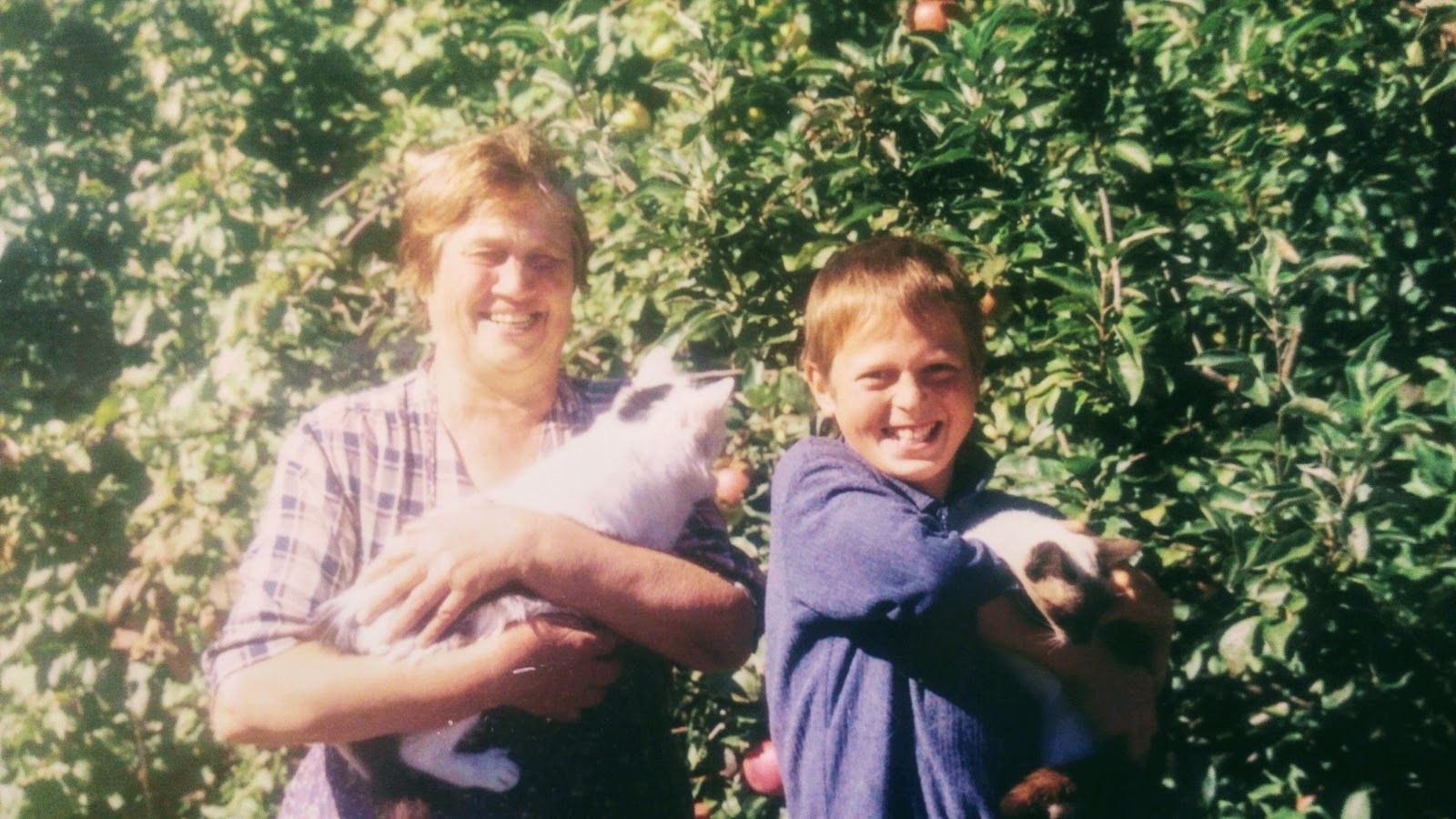How do you share your knowledge and lived lessons at scale?
Almost a year ago I started writing this blog. Here’s what motivates me:
1. Giving back
I personally get a lot of insights from reading the blogs of other people. E.g. I found a ton of interesting thoughts on the blog of OpenAI's CTO Greg Brockman, or the blog of Andrej Karpathy (ex-director of AI/autopilot at Tesla). They are light years ahead of me in terms of career. But when you start reading them, you can see they faced the same problems at some point in their life, as you have now, so you can learn from their experience.
It doesn’t have to be a lot of text at all. A friend of mine Sara simply shares her notes in Notion (just a bunch of links), I find it incredibly useful and interesting to look through. Many people taking notes. Why not share them with the world?
Sharing good ideas makes our world a bit better place, so I want to contribute to that process!
2. Making ideas accessible
I believe that everything is a computation. If you lived through some unique experiences and did a lot of hard work (a big computation) to figure things out, it would be great if other people could benefit from it, i.e. don’t have to compute these things again from scratch. To achieve that, your computation results need to be more accessible to people.
E.g. I really enjoyed yesterday’s Veritasium video about the Fast Fourier transform (FFT) algorithm. This algorithm changed the world. But could have changed even more, and made it a safer place, if it didn’t have to be re-invented again, e.g. if Gauss (or somebody else) made it more accessible/known to scientists.
Explaining ideas in an accessible form can actually change the world!
3. Increasing your own knowledge
When I was an engineer at Google Ads, we had a weekly "day in my life" newsletter (sent to 100+ people). One day was my turn to write replies to some simple questions like "what book have you read?", "what food did you eat?", etc.
So I wrote which book I read that week, and also mentioned that my favourite one is the fanfic “Harry potter and the methods of rationality” (hpmor.com), which I’ve read three times and found truly life-changing. About 10 people out of 100+ replied that they also read it and love it, and one of them (Evgeny Shvyryaev) told he read it, loves it, and also went to the rationality workshops in Seattle and even sent me the workbook. That was so cool!
I realised I should somehow increase my surface of interaction with the world. Even if you know something very well, you can still learn even more interesting things!
You can think of that as a tool to interact with reality - you can run experiments, test various ideas, and learn from them.
If you publish something that excites you a lot, and you want to learn even more about it, writing a blog is a great tool for that!
4. Documenting your journey
Some people don’t know where to start, or what to write about. Some people are even afraid they are just creating extra noise in the universe, and that they are not fully experts in something to write about it.
I really like looking at things as documenting your journey. You don’t have to be a recognised expert. You simply have some experiences in your life. If you document them well, it would be super valuable for other people.
Ali Abdaal had a really good example: if your friend is learning how to play the piano and documenting their journey (say having a blog about it), you wouldn’t be mad at them at all. It’s quite the opposite, you probably would be proud of them, and it could only spark your enthusiasm to learn how to play the piano as well!
If you’re an expert at something (you’d think it’s time to start teaching other people), but it’s hard to even remember how you were starting, it’s already such a large gap. If someone is only in the middle of the journey, they could teach beginners much better sometimes.
It’s super valuable when people document their journeys and lessons!
5. Organising your thoughts
When I was an intern at Google, I was working on improving the spatial alignment of satellite imagery at Geo. It was quite a large project with a lot of open-ended problems. A lot of people had many ideas. But for me, it wasn’t very clear where to even start. Likely my co-host Mark Duchaineau gave me very good advice: start with writing a doc, it should help you to organise your own thoughts.
Since then I’m always trying to start any ambiguous problems by simply dumping all the ideas into a doc and refactoring it. It could be collective writing. You kind of create a shared pool of meaning and try iterating on that, making it more clear and more actionable.
Also writing helps me to reflect on my life. When I feel overwhelmed with a lot of thoughts, I start journaling:
- I create a brain dump, just trying to write down all my feelings and concerns.
- Then I start clustering similar thoughts together.
- After that, I re-write each cluster in a simple form, so it’s just one concern, one idea, or one problem.
- Once it’s done, it’s so much easier to focus on each of these concerns and come up with some actions to tackle them. E.g. you can come up with the rules “if someone crosses my boundary that way, I do …”. Or something similar.
Basically, it’s like refactoring a code or making a playbook/set of rules for yourself.
6. Improving storytelling skills
I find the idea of becoming a better storyteller compelling. If you can deliver your speech effectively this could be very rewarding. People would be cheering you up and you can get a lot of positive energy back!
I’m thinking to try maybe the “sci-fi writing 101” course, or similar (could be useful to write a promo packet at Google haha).
Another idea is to find a professional writer (or multiple), and pay them to rewrite your text in a nicer way. Then you can use diff-checker (the same way we’re doing code reviews), so you can see what changed.

This would allow you to train your neural net, fix common anti-patterns in your speech, learn new phrases, etc.
6. Growing public profile & building a personal brand
Writing can help you develop a stronger personal brand and grow your public profile.
If you do that, more people can find you, more people can benefit from your work. Eventually, you will connect with more and more amazing people. Connections are super important and unlock a lot of incredible opportunities in life!
Also, it’s more fun when people already read your blog, so you don’t have to explain an idea from scratch, you can jump directly into details. It saves a lot of energy and is more interesting this way!
7. Social accountability
If you claimed something publicly in front of many people, it can nudge you to actually do that. E.g. if you say I’m going to write 20 sentences a month, you’ll try your best to do that. Kind of why not leverage this extra tailwind?
I’m planning to kick off an ecological quest, a line of posts focused on investigating a particular problem (e.g. figure out how to get rid of plastic packaging in grocery stores in London. At the moment almost every bottle is plastic, almost all the fruits are in plastic, it’s crazy). Practically this would be writing once every couple of months a post, listing my current assumptions there, and defining my action space. For e.g. I can ask about it owners of the stores, I can talk to the supply chain people, I can grab coffee with the local council, I can do some sort of market research (engage other people in that). This would be my journey. If people are going to read this, it would give me extra motivation. I believe this kind of stuff can actually solve some real-world problems!
8. Publishing a book or creating a masterclass
It doesn’t have to be a goal but just look at the Tools of Titans by Tim Ferris - this is a simply massive compilation of notes. It’s full of interesting ideas and I find it very insightful. At the same time, a lot of people make notes. Why not publish them? Why not convert your blog/notes into a book?
For example, if you were writing a blog for 5 years, this could be really good material to write a book, or to make a masterclass (e.g. on skillshare). This could become your passive income and would be helpful for the world.
9. Impacting local communities
Most of the people reading my blog know me in person. I think there’s a huge difference between reading some abstract person out there and reading your friend.
I love reading the blogs of my friends, e.g. check out:
- HealthyHer newsletter by my friend Natasha Antropova
- teletype & Боря программирует by Borys Minaiev
- About VC, startups, and crypto by Yana Abramova
and many others!
10. Inspiring others
People influence each other a lot (in a good or bad way). There’s a saying that you’re kind of a product of N people around you. Everyone has role models in front of them, and everyone has lessons to share.
Even if you’re not realising it, you’re already influencing someone. You’re a role model for other people around you. So, if you’re a role model anyways, why not try being a good one, and do that effectively?
I think people are kind of like electrons, moving in various directions. But as soon as electrons start moving together, a powerful electric current appears. Only together we can move our civilisation forward!
Tech stack
I was thinking for a while about where to write. I decided I need to have a minimalist website, so I can share short links (e.g. nozdrenkov.com/okrs) everywhere (for now it’s Instagram, Facebook, Twitter and LinkedIn), instead of optimising for one platform.
I looked into Ghost, Substack, Teletype, Mirror.xyz, Telegra.ph, HashNode, Motif and of course at building my own website. Eventually, I settled with Ghost, it’s quite nice, super easy to set up, has all the features I need and is used by a lot of companies (e.g. Duolingo, OpenAI, Mozilla, etc).
I use Roam (kudos to Alexander Zimin for recommending it) to capture my own notes and generate ideas (check out also Obsidian and Logseq).
I set up Google Analytics to see which posts are more popular, etc. Thinking about trying Simple Analytics as well.
Starting today I use Grammarly, wowee!
Also, I’m super fascinated by the success of GPT-3, copilots. I’m playing around with Lex (thanks to Ahmad Butt for inviting me). It’s super impressive!
Next steps
- Writing more! I found my writing buddies, yay! E.g. we have a shared OKR with Ahmad Butt to write N sentences a month. Social accountability helps a lot!
- Learn how to write better. Maybe doing this “sci-fi writing 101” course, or learning frameworks like HIVE = hook, introduction, value, end. Hire a professional editor.
- I’m thinking to start a minimal YouTube blog (or Reels/Tiktok/Shorts), because not everyone likes reading, etc.
- Translating to other languages. It seems around 17% of the world’s population speaks English. I think it would be nice to add support for other languages. But this is a long-term goal.
Are you writing your own blog?
What blogs would you recommend reading?
In loving memory of my grandma...
I would like to honour the memory of my fabulous grandma Anna Nozdrenkova, who tragically died in a horror car crash 9 days ago.

She’s been an amazing person and a role model for me. My grandma had a massive impact on my life. She taught me how to read and write before I went to school (she used to be a teacher for many decades). At some point, she helped me to create a giant genealogical tree (250+ people), with time this turned into my love to graph algorithms and programming. She was a fascinating human being! Now I have a giant hole in my heart. I love her and miss her so much!
Please help me improve my writing 🙏


